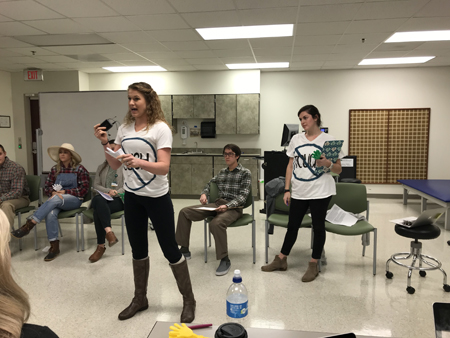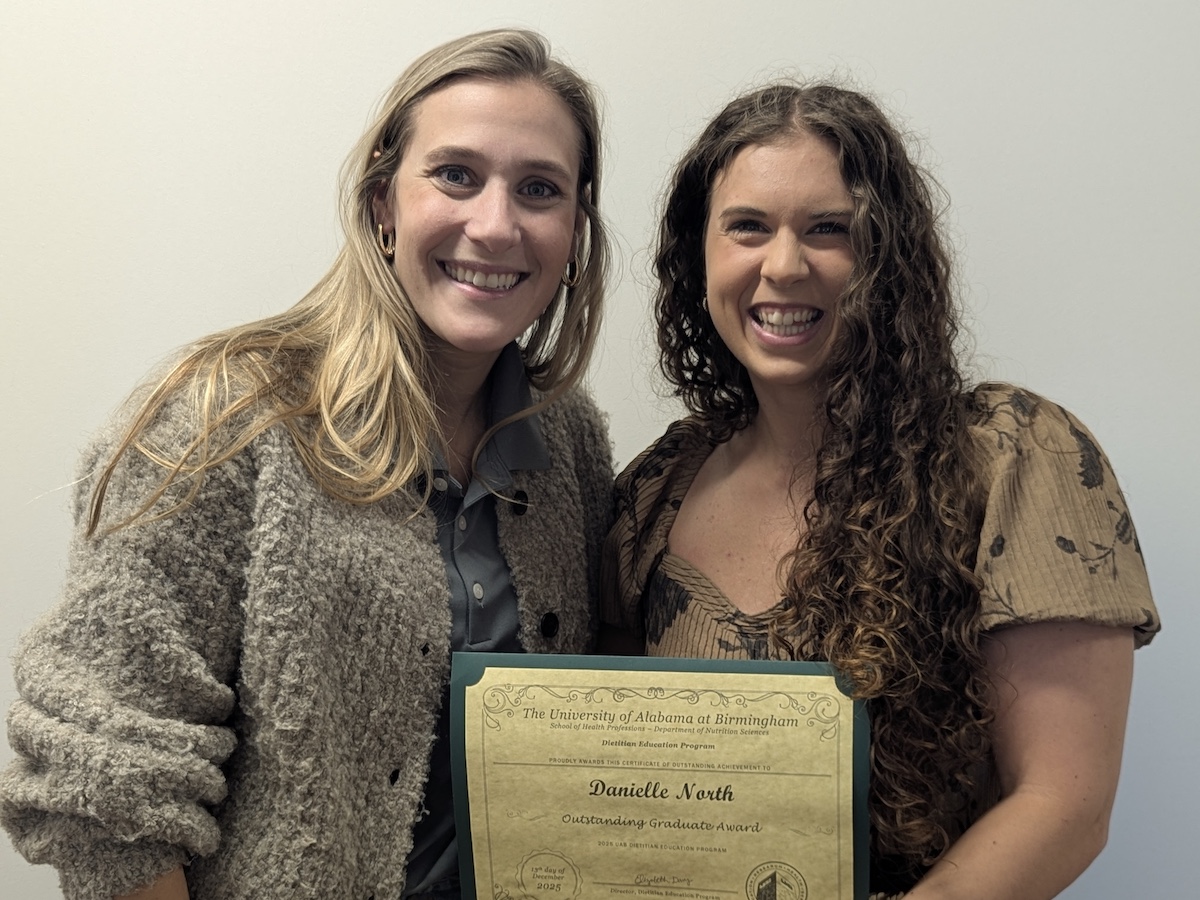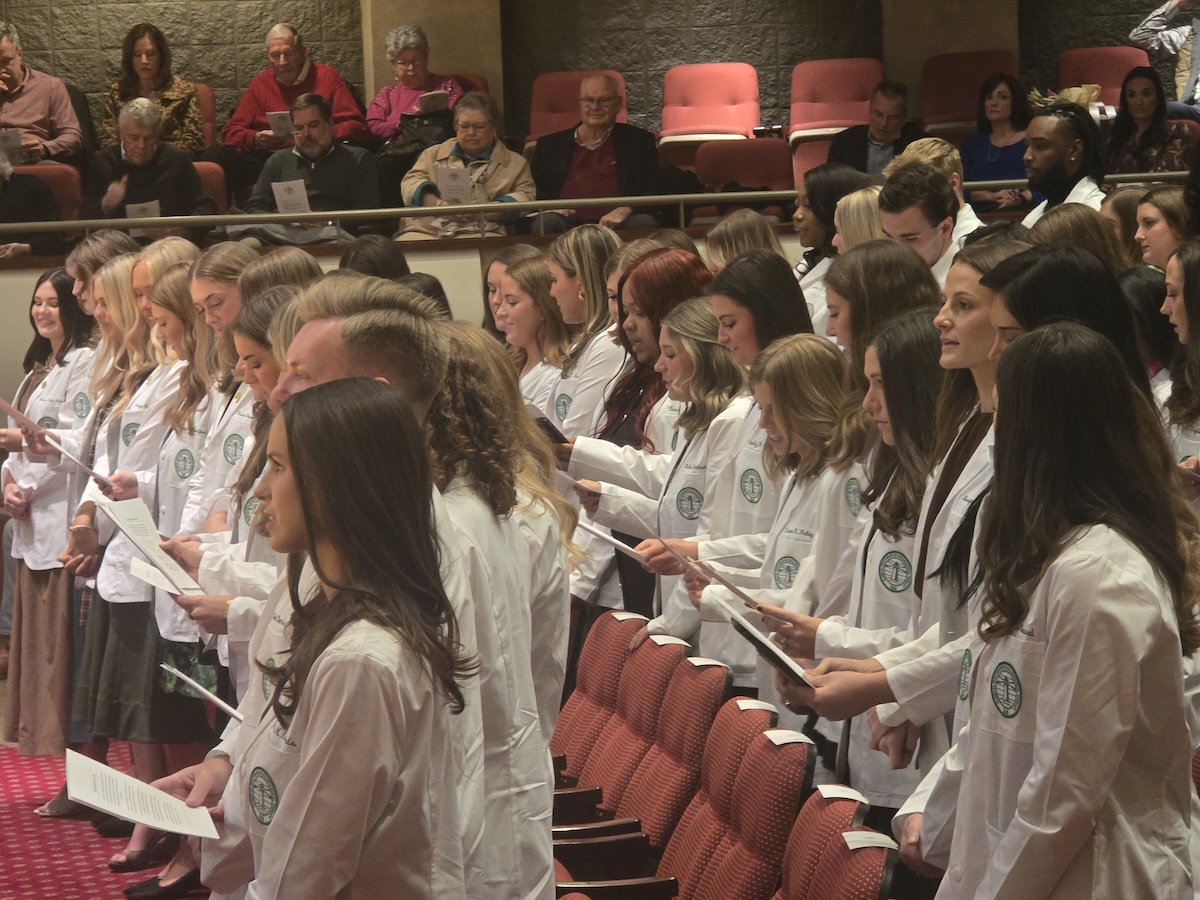For the 4th year in a row, students in the UAB School of Health Professions’ Doctor of Physical Therapy program hosts Oxford-style debates to better learn the issues they may face in the PT field.
The Oxford-style debate format involves a debate on a predetermined question – it can also be in the form of a statement called a “motion” – from two opposing perspectives. The two sides argue either “pro” or “con” toward the question, with their team’s stance determined by the faculty member.
““We created our version from the Oxford Debate conducted annually at the APTA’s NEXT Conference. It allows students to seek evidence, develop valid discussion points, and engage their creativity as they present their argument to their peers while learning about hot topics affecting the professional of physical therapy,” said Tara Pearce, PT, DHS, Director of Clinical Education, Assistant Professor of the UAB Department of Physical Therapy.
This year, the DPT Class of 2019 students debated eight topics. Here is a look at four of the topics that were debated:
- Should concussion clients be required to gain PT clearance before returning?
- Should PTs be reimbursed for services delivered via telehealth?
- Should Alabama allow for unrestricted access to PT services?
- Should third-party payers adopt a merit-based payment system for PT services? (watch a clip from the “Con” debate below)
The rules in the UAB PT version is that the center aisle is neutral. On one side of the aisle are the “pro”chairs and on the other the “con” chairs. Throughout the debate the audience goes back and forth across the aisle depending on their sentiment. Whichever side ends with the most members of the crowd is the winner.
It is a lively lesson that is perfect for the situation: mere weeks before the third-year students leave campus for the final three clinical education experiences before graduation.
 “Creativity is a great skill for a PT to have,” said Pearce. “Creativity strengthens your argument, but in the clinic your creativity can influence your client’s success because many people respond better with creative strategies to influence their recovery.”
“Creativity is a great skill for a PT to have,” said Pearce. “Creativity strengthens your argument, but in the clinic your creativity can influence your client’s success because many people respond better with creative strategies to influence their recovery.”
Each individual debate ends with a brief class discussion on the topic. Faculty lead the exploration into the pro and con arguments that were delivered and address any questions students have.

